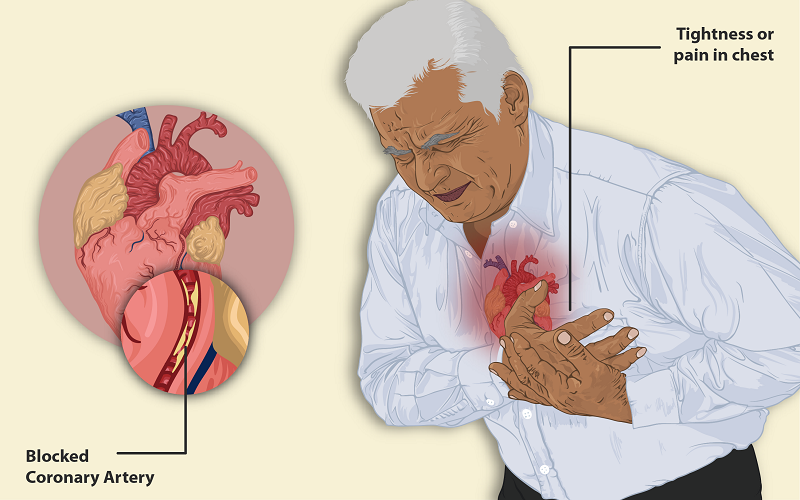“Heart attack” and “cardiac arrest” are these two terms often used interchangeably, possibly because they both involve a malfunction of the heart. However, they designate different medical events. Let’s do a check in.
The Heart Attack
Coronary arteries are arteries that line the surface of the heart. They are what allow it to irrigate with blood, and therefore nourish the heart muscle (myocardium). A distinction is made between the left coronary artery and the right coronary artery, and both originate in the aorta. However, heart attacks happen when one of these arteries becomes blocked. Blockages are usually caused by accumulations of fat, most often bad cholesterol.
If this blockage is not removed quickly, cells in the affected area, deprived of oxygen for too long, die. The extent of tissue damage varies depending on the duration of this interruption in oxygen supply. Some lesions may be mild, while others are serious or irreversible. In some cases, the heart attack can be fatal.
On the symptom side, in both men and women, chest pain and discomfort are the most common. It should be noted, however, that some symptoms can be immediate and intense (tightness, severe pain in the chest), while others can occur over time, up to weeks before an actual heart attack. Also, some people will not experience chest pain, especially women, the elderly, and people with diabetes. The seizure can then manifest as discomfort, sudden shortness of breath, unexplained fatigue or unusual sensations in the left arm.
If you have these symptoms or even if in doubt, do not hesitate to call 15 (SAMU) or ask someone to do so. Then stop all activity and put yourself in the position you are most comfortable in while waiting for help.
Cardiac Arrest
cardiac arrest is caused by an electrical dysfunction of the heart that produces an arrhythmia (an irregular heartbeat). Due to this disturbance, the uncontrolled contraction of the heart no longer allows blood to be pumped properly. Blood flow (and therefore oxygen) to the brain, lungs and other organs is disrupted.
Unlike a heart attack (also called a myocardial infarction), cardiac arrest happens suddenly and often without warning. Symptoms include dizziness, loss of consciousness, and shortness of breath. This is called cardiac arrest when the victim loses consciousness, falls and does not react when spoken to or stimulated, or when his breathing is nonexistent or very irregular.
Victims of cardiac arrest can die within minutes without treatment. How to react ? Here is HENRY’s tutorial, funny and atypical, offered by the French Red Cross:


